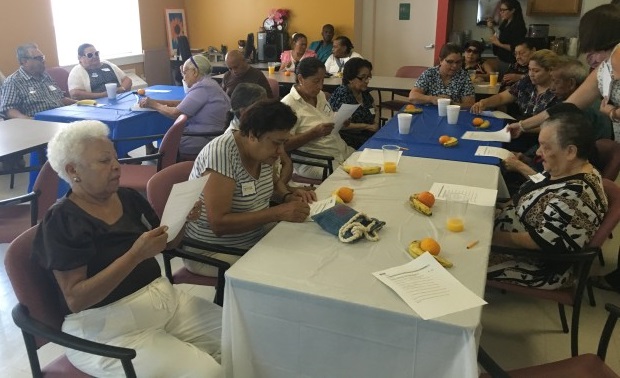This post originally appeared on the NHCOA blog.
Latinos comprise one of the U.S.’s largest ethnic groups, making up 17% of the U.S. population; however, they only make up 1% of those participating in clinical trials, according to data from the National Press. This is concerning as Latinos have a higher rate of chronic disease and are one of the fastest growing demographics in the nation.
Clinical trials are generally research studies that examine if a treatment or medical strategy is effective for individuals with a certain illness. Sadly, the participation of minorities in clinical trials across the United States is under-represented.
For example, according to the University of California, Davis, African Americans experience the highest incidence of cancer (593.7 cases per 100,000 people) but, along with Hispanics, both have the lowest rates of cancer clinical trials participation at 1.3% (UC Davis, 2014).

Dr. Yanira Cruz, President of the National Hispanic Council on Aging (NHCOA), points out that Latinos face barriers to participation in clinical trials. These include language and cultural differences, lack of education, health literacy, and a dearth of information on clinical trials.
Generally, invitations to participate in clinical trials are in English, which my limit the participation of Latinos who are limited English proficient. Moreover, Dr. Cruz stresses that cultural factors may also discourage Latino participation in clinical trials.
For example, some Hispanics rely on faith when faced with health issues rather than treatment. Latino families are also often very involved in medical decisions and may be hesitant to have their family member participate in clinical trials. Finally, in Hispanic culture, individuals need a trust relationship between patient and physician, which often is not established before the start of a clinical trial; therefore, they do not feel comfortable participating in the trial.
Low levels of health literacy and formal education also create an obstacle in accessing services, benefits, and knowledge of medical procedures. A participant with low levels of formal education often finds it difficult to understand medical terms and procedures inherent in clinical trials. “In occasions when the concepts of the research are not clarified for the participants, they will have doubts about how the clinical trial works and its effectiveness. The purpose, benefits, and risks must be understandable for Latinos for them to participate,” said Dr. Cruz.
During the National Convention of the National Association of Black Journalists and the National Association of Hispanic Journalists (NABJ/NAHJ), held on August 4, 2016 in Washington DC, Dr. Yanira Cruz participated in a panel discussion “Increasing diversity in Clinical trials” sponsored by Eli Lilly and Company. The panel discussion focused on the lack of minorities participating in clinical trials. In encouraging more Latinos to participate in research trials, Dr. Cruz stressed that, “It’s important that Latino communities be seen as a subject of development and not only as a subject of study.” Doctors, researchers, and recruiters must have cultural sensitivity and empathy to be able to understand and gain more participation from the Latino community.
In addition, the panel discussion also addressed the role of mass media communications in encouraging Latino communities to participate. During the discussion, Dr. Cruz emphasized that, “Mass media communications and clinical research are a matter of social responsibility.”
For example, the media was quick to cover unethical research in the past, such as a trial in Guatemala, during which more than 1,500 individuals were infected with syphilis, after having been given false information that the trial was to seek the cure of sexually transmitted diseases. Bringing such abuses to light is an important media role; however, it is also important that the media highlight the benefits to individuals and public health of the majority of trials that are conducted in a highly ethical manner. It is also an important media role to inform populations about clinical trial opportunities in their geographic area.
It is critically important that ethnically diverse groups participate in clinical trials, since disease impact and the effectiveness of treatment varies according to gender, age, genetic background, lifestyle and other factors. Participation in clinical trials is a moral imperative for ethnically diverse communities as one’s participation can not only open doors to improving one’s own health, but can benefit many others in one’s own community.
The opinions expressed in this article are those of the author and do not necessarily reflect those of the Diverse Elders Coalition.

